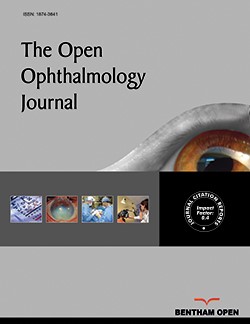All published articles of this journal are available on ScienceDirect.
A Novel approach for Corneal Remodeling of Laser Asymmetric Keratectomy with Collagen Cross Linking in Patients with Keratoconus Suspect
Abstract
Background
True Keratoconus Suspect (KCS) is an absolute contraindication to LASIK or Photorefractive Keratectomy (PRK) due to postoperative ectasia.
Objective
To evaluate the effectiveness of laser asymmetric keratectomy with collagen cross-linking (L-LAK-CXL) in myopic patients with suspected keratoconus (KCS).
Methods
This study included 40–44-year-old four myopic (-2.50 to -5.50 D) patients (4 eyes), of KCS with focal corneal steepening over +47.0 D and peripheral asymmetric corneal thickness. L-LAK-CXL was performed for both original ablation of refractive errors and crescentic customized ablation of the thicker peripheral cornea selectively and myopic changes due to the ablation of the peripheral thicker cornea simultaneously, followed by CXL without the epithelium. We compared preoperative and postoperative ocular findings, including corneal symmetry (total differences of the corneal thickness in four directions (SUM) and decentration of the thinnest point (DISTANCE)) and tear break-out time (TBUT).
Results
From preoperative to postoperative, spherical equivalent (D, average) decreased from -3.38 to -0.34, uncorrected distance visual acuity (LogMAR) increased from 0.53 to 0.00, and Kmax (average D) had decreased from +48.3 to +43.95, central pachymetry (CP, µm, average) decreased from 574 to 511. Postoperative corneal symmetry increased markedly owing to decreased SUM and DISTANCE scores. TBUT increased over 15 s postoperatively. No post-operative corneal ectasia was observed.
Conclusion
L-LAK-CXL improved corneal symmetry in myopic patients with KCS by reducing SUM, decreasing DISTANCE and Kmax, increasing TBUT, and demonstrating good postoperative visual outcomes.


